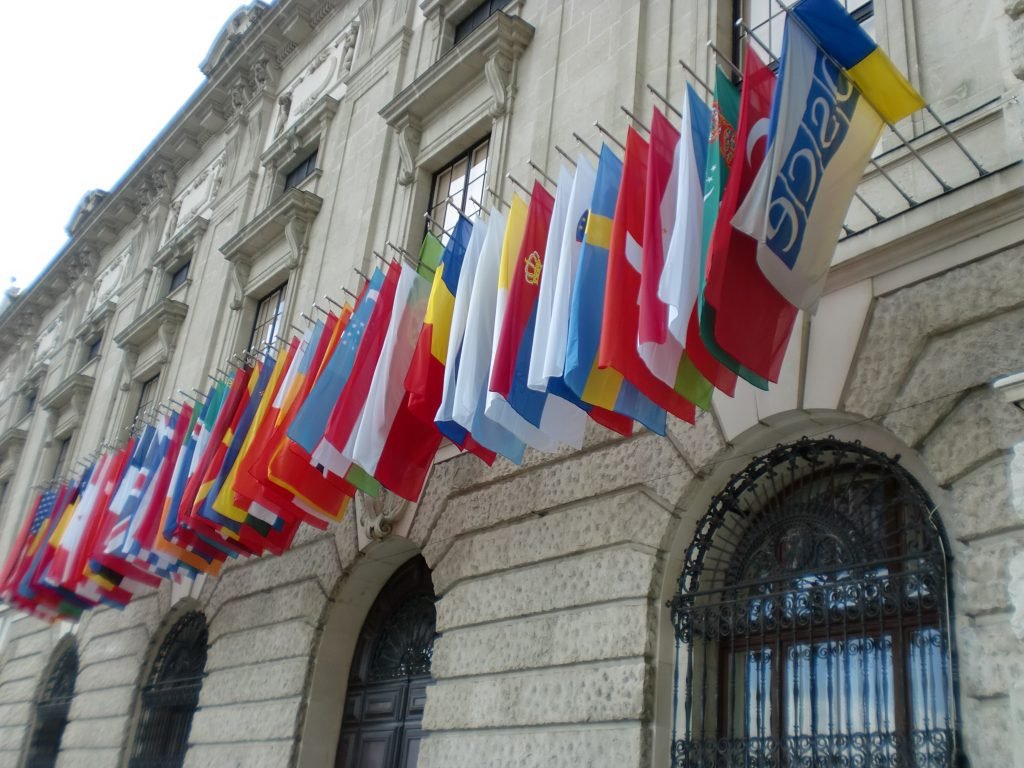This research paper explores how diaspora communities contribute to peacebuilding, development, and social cohesion in their countries of origin. Drawing on examples from the Somali, Eritrean, Colombian, and Ukrainian diasporas, the paper examines transnational civic engagement, remittance-driven development, and diaspora-led advocacy as tools for influencing post-conflict recovery. The study aligns with the Swedish Center for Studies and Research’s mission to advance knowledge on migration, integration, and global peacebuilding.
1. Introduction
In an increasingly interconnected world, the influence of diaspora communities extends beyond cultural preservation or remittance flows. Diasporas today play active roles in shaping political discourses, funding development initiatives, and contributing to peacebuilding processes in their countries of origin. As conflicts have become protracted and international responses fragmented, diaspora engagement has emerged as an untapped resource for sustainable peace and reconciliation.
The concept of “diaspora diplomacy” encapsulates this evolving role. From advocating for transitional justice in global forums to creating virtual civil society platforms, diasporas are reshaping the architecture of peace in subtle but impactful ways. This paper investigates how diasporas participate in peacebuilding and how host countries, like Sweden, can serve as enablers for such efforts.
2. Mapping Global Diasporas
According to the International Organization for Migration (IOM), over 280 million people live outside their country of birth. A significant proportion of these are part of conflict-induced diasporas—communities shaped by war, displacement, and exile. These populations, while diverse in motivation and integration levels, often retain deep socio-political ties to their homelands.
The Somali diaspora is one of the largest and most politically active in Africa. In Europe, the Colombian and Eritrean diasporas have similarly engaged in post-conflict justice and social reform. The Ukrainian diaspora, particularly post-2022, has mobilized globally for humanitarian relief and national reconstruction.
Understanding these communities requires analyzing their political alignment, generational divisions, geographic dispersion, and modes of organization—from formal NGOs to informal online collectives.
3. Forms of Diaspora Engagement
Diaspora peacebuilding occurs in various forms:
- Remittances and Development: Remittances surpass official development aid in many low-income countries. Diaspora-driven funding supports education, healthcare, infrastructure, and local peace initiatives.
- Civil Society and Advocacy: Many diasporas establish non-profit organizations focused on human rights, conflict resolution, or community development. These groups often serve as intermediaries between international donors and local actors.
- Political Lobbying: Diaspora members leverage their positions in host countries to influence foreign policy or international legal processes, as seen in Colombian diaspora advocacy for peace accords and transitional justice.
- Cultural and Media Influence: Through film, literature, podcasts, and social media, diasporas shape narratives around conflict, reconciliation, and national identity.

4. Sweden’s Role as a Host Country
Sweden hosts diverse diaspora populations, including sizable communities from Somalia, Iraq, Syria, and Afghanistan. The Swedish model of integration—centered on access to language, education, and civic participation—creates a conducive environment for diaspora engagement.
Municipalities play a critical role in enabling or hindering diaspora efforts. In cities like Malmö and Uppsala, refugee-led initiatives receive logistical and financial support from local governments. Nationally, programs by the Swedish International Development Cooperation Agency (SIDA) and civil society networks help link diaspora actors with development partners abroad.
However, policy gaps remain. Bureaucratic hurdles, lack of recognition of diaspora organizations as formal stakeholders, and limited coordination between integration and foreign policy agendas restrict the full potential of diaspora diplomacy.
5. Challenges and Tensions
Despite their potential, diaspora communities face internal and external obstacles:
- Fragmentation: Divisions along political, ethnic, or generational lines may limit collective action.
- Securitization: Diaspora activism is sometimes framed as a security threat, leading to surveillance or restrictions.
- Exclusion from Peace Processes: Diasporas are often marginalized in formal peace negotiations, despite their resources and networks.
- Capacity Constraints: Many diaspora organizations operate on volunteer labor and lack access to institutional support.
6. Case Studies
- Somalia: Diaspora groups have facilitated clan dialogues and supported regional administrations with technical expertise and funding.
- Colombia: Exiled activists have lobbied for victims’ rights and legal accountability mechanisms during the peace process.
- Ukraine: The diaspora has mobilized massive humanitarian aid and engaged in policy advocacy across Europe and North America.
- Eritrea: Despite internal divides, youth-led initiatives have created platforms for civic education and transnational solidarity.
7. Policy Recommendations
- Recognize Diasporas as Stakeholders: Include diaspora voices in peace consultations and development planning.
- Legal and Financial Support: Simplify registration processes for diaspora organizations and facilitate cross-border financial transfers.
- Capacity Building: Provide training in conflict sensitivity, project management, and diplomacy.
- Foster Networks: Encourage collaboration between diaspora, state institutions, and international NGOs.
8. Conclusion
Diaspora communities are no longer passive observers of their homelands’ fate. As agents of change, they bridge societies, mobilize resources, and challenge dominant narratives. Recognizing and enabling this role is essential for sustainable peacebuilding. For host countries like Sweden, engaging diaspora communities is not just a matter of inclusion—it is a strategic investment in global stability.
References:
- IOM (2023). Diaspora Engagement in Fragile Contexts.
- UNDP (2021). The Role of Remittances in Post-Conflict Reconstruction.
- Uppsala University Migration Studies.
- Interviews with diaspora leaders in Sweden and Germany.
